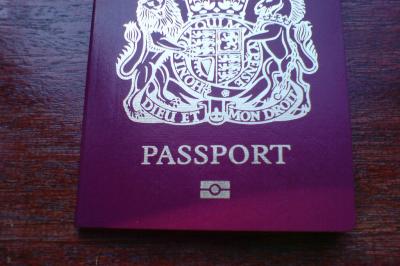Last week, former Conservative culture sectary Maria Miller made a call for the government to end the practice of disclosing genders on official documents, like passports and driving licenses, as a way of addressing concerns over transgender discrimination.
In an interview with The Times, the MP argued that:
“We need to understand that gender stereotyping can be as damaging for men as it can be for women… For individuals who have decided to transition but haven’t necessarily got the right documentation, it can cause problems. Why do we need gender on our driving license?”
Miller stressed that the government needed to do more to address the “damaging” impact of gender stereotyping for the 600,000 people in the UK who are “gender dysphoeric” and feel uncomfortable being defined as either ‘male’ or ‘female’. She urged the Tory Government to make changes to create a more inclusive and fair society, championing the rights and wellbeing of trans people.
Far too complicated
As it stands now, in order to change your legal gender in the UK you need to endure a long and arduous process, involving medical and physiological assessments, requiring you to divorce your partner if married, and for you to live in your chosen gender for two years before attending a hearing before a judge.
While MPs from across the board have agreed that regulations for gender transitioning are too tight, we are still required by law to provide a gender on legal documentation for use of identification purposes. However, is disclosing our gender a necessary or effective step in letting the world know “who we are”? In short, no, it isn’t.
Out of date?
Stipulating our gender, like when we state our country and race, is a security measure, but is it a relevant one? In an article for The Guardian, Paris Lees made the point that, “Modern passports boast colour photographs, hi-tech deterrents against forgery and biochips. Most airports have scanners that can see through your clothes”. We’ve moved on from the days where passports were the holy grail of identification, to be scrutinized suspiciously by customs at border control, and we now rely much more on the use of new technology, which makes the process of identification quick and easy. Whether we are male or female is irrelevant, and knowing the gender of the person sitting next to me on the plane wouldn’t make me feel any safer or put my mind any more at ease.
So long as there’s a recent and decent photo of you, the specificities of your gender will not aid in your identification. Forcing those who do not feel as though they identify as their assigned gender, but lack the correct documentation, to pick a title to represent them which they feel to be false, is cruel, punitive, and discriminative, and could have lasting emotional and psychological effects on the individuals these unfair measures are imposed on.
As a society, we are learning more how gender is complex, and not always so cleanly cut. We can’t be reduced to a small, unnecessary black “M’ or ‘F’ under our names, which in real terms, holds no significance to our character or aids, in any way, our visual identification. In a 21st century world, we are constantly revolutionizing old practices and breaking down unneeded barriers. It should be time for the UK to follow in the footsteps of countries like Australia, who have already done away gendered passports, as Miller quite rightly said, “As a society and a government we should be looking at ways of trying to strip back talking about gender, and only do that when it’s absolutely necessary.”
Do you think ID should be degendered? Let us know in the comments below.









